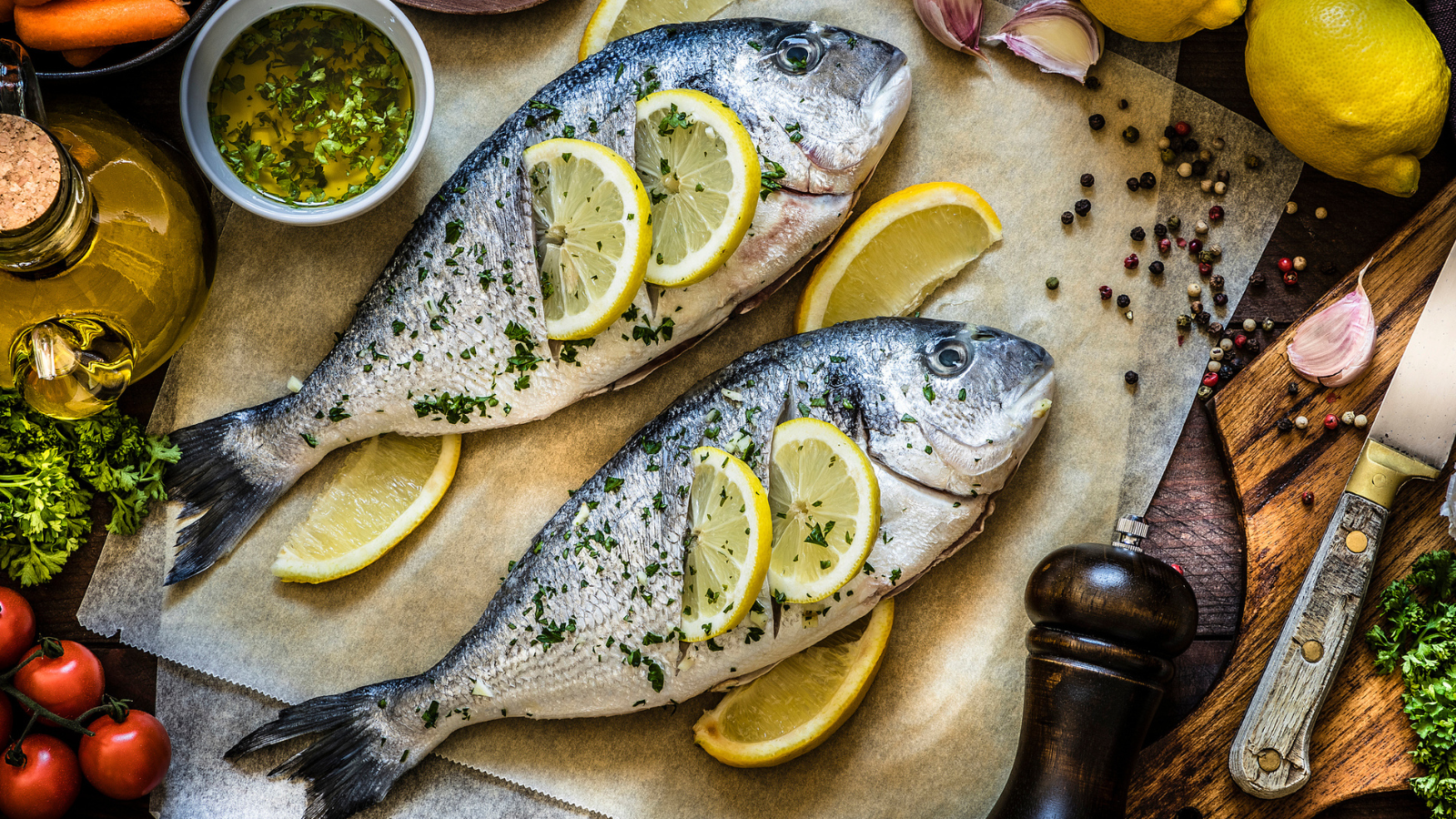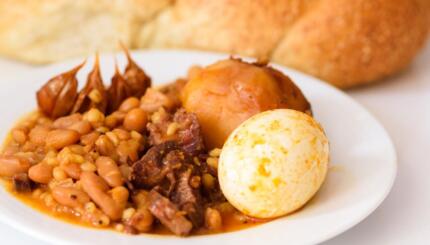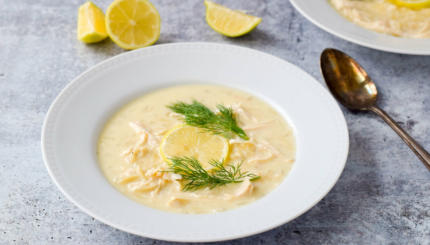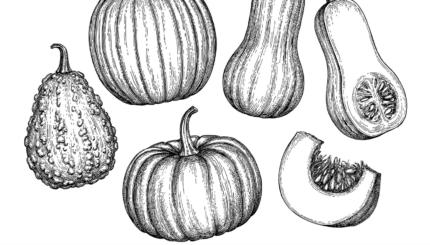“May we be the head and not the tail.”
Vered Guttman, Israeli chef and food writer, recited this modern blessing with her family as a child for the High Holidays. This was a saying that would be uttered over a dish featuring fish, such as chraimeh (Tunisian fish stew) or a platter of whole fish, heads included.
In Deuteronomy, the fifth and last book of the Torah, we read, “God will make you the head, not the tail.” The meaning behind these words is, essentially, if you follow the commands of God, you will be at the top, never the bottom.
Among the Diaspora of the Jewish people — a group who has continued to find themselves in times of both triumph and tragedy, at both the “head” and “tail” ends throughout history — the Sephardic tradition of whole fish, heads included, symbolizes perpetual resilience and renewal in the new year.
The Nosher celebrates the traditions and recipes that have brought Jews together for centuries. Donate today to keep The Nosher's stories and recipes accessible to all.
Rosh Hashanah and Yom Kippur are the most sacred and important of the holidays throughout the Diaspora, though the holiday is celebrated in varying ways among the Ashkenazic and Sephardic peoples. Traditions and cuisine differ based on regions and interpretations of Jewish law.
While sweet foods for a sweet new year may be common among both groups (from apples and honey to pomegranates and dates), fish is notably more central to a Sephardic spread. Seen as an omen for good blessings in the year to come, in Greek-Jewish homes, the fish was often reserved for the head of the household. Sheep’s head also long served as part of the Sephardic spread, “as a reminder of the ram that saved Isaac’s life. We recite the story of the binding of Isaac on the second day of Rosh Hashanah.” For vegetarian Jews, a head of cabbage or lettuce to represent strong leadership can be considered as an alternative.
In modern times, the Sephardic tradition of eating fish has brought forth a delicious array of complex and varying foods including dishes like chraimeh, Moroccan fish balls, pescado con limon y huevo and fish kebab with artichoke and fava bean.
The practice of incorporating fish as part of the meal is as much about tradition and food as it is about setting goals for the new year. Whether it be a blessing for renewal or prosperity, the experience of the Sephardic tradition of eating fish represents the varying ways we come together to celebrate Rosh Hashanah.



